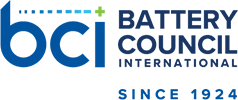California’s Department of Toxic Substances Control’s (DTSC) Safer Consumer Products Program (SCPP) has released its final 2021-2023 Priority Product Work Plan that identifies the products and chemicals under review for potential regulation.
DTSC’s Work Plan confirms that lead batteries are no longer under evaluation. The agency’s decision reflects a rigorous evaluation of potential life cycle impacts, current regulations and ongoing product innovation leading to the conclusion that “listing lead-acid batteries as a Priority Product is not likely to further enhance protection to human health.”
DTSC will in the near future release a technical document summarizing its evaluation of lead batteries and provide a short summary of the ongoing work of the Lead-Acid Battery Recycling Facility Investigation and Cleanup (LABRIC) Program as context for its decision.
Roger Miksad, executive vice president of BCI said, “On behalf of our members, BCI appreciates the dedication and care DTSC staff have put into their review of lead batteries over the last five years. This outcome is the right one and recognizes that lead batteries are critical to meeting America’s energy storage needs and are already well-regulated. The industry’s highly successful closed-loop recycling system and investment in new technologies and innovations also means that lead batteries hold the promise of delivering safe, sustainable energy storage in the future.”
Lead batteries are a proven technology powering motor vehicles, cargo handling equipment, medical devices, telecommunications infrastructure, microgrids and many other applications across California in a safe, reliable, cost effective, and sustainable manner. Ongoing improvements in design and performance position lead batteries as a cornerstone energy storage technology to enable greater utilization of renewable energy resources and 24/7 reliability for residential properties and commercial buildings.
DTSC’s decision to refrain from listing lead batteries as a “Priority Product” in the SCPP sends an important signal to the energy marketplace, encouraging continued investment in a technology that is essential to achieve the state’s ambitious clean energy goals. The industry, government agencies and world-renowned researchers and academic institutions located in California and elsewhere are pursuing innovative research and development projects to enhance lead battery performance, particularly for battery energy storage systems that store and deliver excess energy generated from renewable resources and can help stabilize the power grid during peak demand periods. The industry will soon release an Energy Storage Roadmap, detailing the capabilities of lead batteries.


